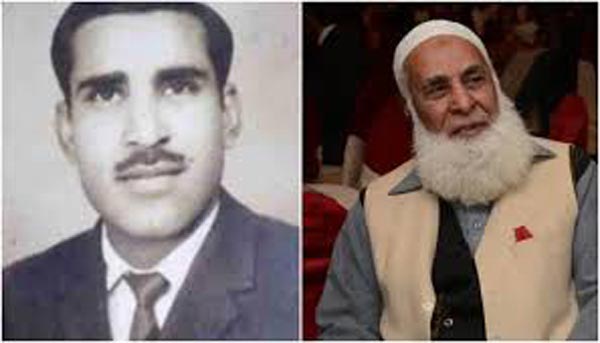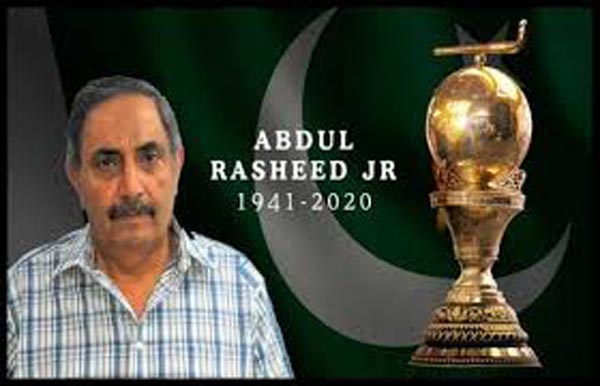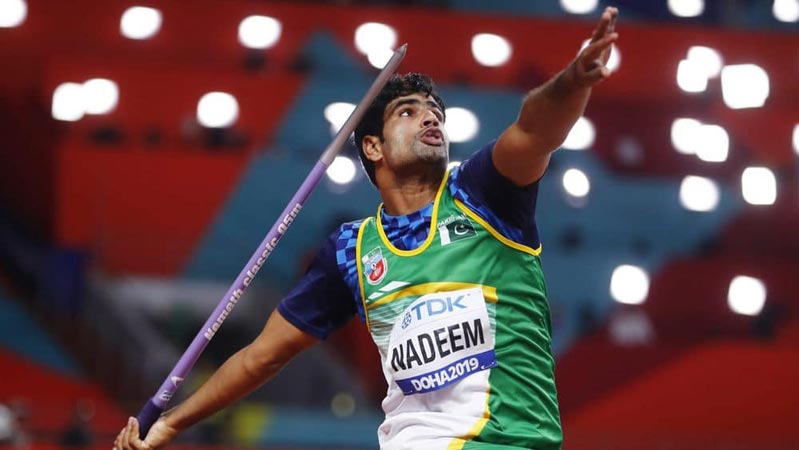
Like the year 2019, there were not many glad tidings even in 2020 for Pakistan sports, except Pakistan defeating archrivals India to clinch the 19th Asian Junior Squash Championship in Pataya, Thailand and one Pakistan javelin thrower qualifying for the Tokyo Olympics. Overall, there was no improvement but only sharp decline in Pakistan sports, on the field as well as off the field. It is lamentable that there was no encouraging news or any specific plan from the Government, giving priority to the sports sector other than cricket. Many Pakistan sports legends left this world for their heavenly abode. For use of drugs in the South Asian Games in Nepal, three Pakistan athletes were banned, and the Pakistan Olympic Association (POA) suspended membership of the Athletics Federation of Pakistan (AFP) for doping violations.
It was very unfortunate that the Summer Olympic Games 2020, scheduled to open in Tokyo on July 24th, were postponed due to the COVID-19 pandemic. The Games were rescheduled to 2021. It is the first time in their 124-year modern history that the Olympics have been moved or delayed during peacetime. The Summer Olympics have been canceled three times before – in 1916, 1940, and 1944 – and the Winter Olympic Games have been canceled twice, in 1940 and 1944, during the World Wars. The 1920 Summer Olympics were held in Antwerp, Belgium, from April to September at the tail end of the 1918 influenza pandemic. The 2016 Summer Olympics were held in Rio de Janeiro, Brazil, despite the outbreak of the mosquito-borne Zika virus. Unlike the Zika virus, however, the coronavirus that causes COVID-19 can be easily transmitted between humans. COVID-19, as like on other countries, wreaked havoc on Pakistan sports also. Numerous events were canceled and others rescheduled. This, in turn, had reduced audiences, viewership and revenues in 2020. For now, it seems the pandemic will continue to force changes in 2021, as well.


Three Pakistan athletes banned for four years for drug use: In August, the National Olympic Committee in Nepal with the consent of World Anti-Doping Authority (WADA) imposed a four-year ban on three Pakistan athletes, who tested positive for banned drugs, besides stripping them of medals they won in the 13th South Asian Games held in Nepal in December 2019. Mehboob Ali (400m hurdles), Mohammad Naeem (110m hurdles) and Samiullah (100m sprint) were tested positive of anabolic androgenic steroids aimed at rapid improvement in performance. Mehboob and Naeem won gold medals in their respective categories while Samiullah finished with bronze.


Sultan Azlan Shah Cup Hockey Tournament cancelled: The Sultan Azlan Shah Cup in Malaysia was supposed to be a grand affair in 2020 following its new status as a ranking tournament. However, the prestigious tournament, incepted in 1983, was cancelled due to COVID-19 crisis on May 2. Pakistan were due to participate in the tournament which was initially scheduled on April 11-18 in Ipoh before it was moved to September 23-Octoeber 3. Pakistan have won this tournament three times in 1999, 2000 and 2003 while they remained the runners-up six times. Pakistan reached the final of Sultan Azlan Shah Cup last time in 2011. However, they lost to Australia 2-3. Had the tournament held in 2020 in Malaysia, It would have been Pakistan’s 22nd appearance.

Three Pakistan shooters to take part in Tokyo Olympics in 2021: Three Pakistan shooters — Khalil Akhtar and Ghulam Mustafa Bashir and Gulfam Joseph — will take part in the postponed Tokyo Olympics in 2021 after qualifying for the mega event in 2019. Akhtar was the first to qualify for the Olympics and will be representing Pakistan in the rapid-fire pistol event. Akhtar bagged silver medal in the men’s 25m rapid fire pistol team event in the 2016 South Asian Games in Guwahati and Shillong, India. In 2018, he competed at the Commonwealth Games in Gold Coast and finished sixth. Bashir qualified after winning the Olympic quota for Pakistan in the rapid fire pistol category. It is interesting to note that Bashir and Khalil were the same shooters who were denied visas to feature in the ISSF Shooting World Cup in India in 2019. Joseph, who is only 19 years old, qualified for the air pistol event of the Olympics.
POA suspends membership of Athletics Federation Pakistan for doping violations: In December, the Pakistan Olympic Association suspended membership of the Athletics Federation of Pakistan for doping violations. The decision was taken after the AFP, led by retired major general Muhammad Akram Sahi, failed to implement proper anti-doping policies after three of its athletes were banned for using drugs in one international competition. The POA said the menace of doping was something which needed to be addressed strongly especially so that clean athletes were protected and a competition was a fair one without any use of performance enhancing drugs. The POA said it was very unfortunate that the AFP refused to cooperate with the probe committee. “These positive cases are detrimental for the Olympic Movement of Pakistan as doping practices propagates negative image of the country and that of the Olympic Movement.” The POA made it clear that for reinstatement of membership, the AFP had been advised to comply with applicable rules and guidelines.
Is there any hope for improvement in Pakistan sports in 2021?: Since independence Pakistan sports are on the map. International sports performances by Pakistan in the last seven decades have much to commend them. Arguably, Pakistan’s performances in many sports have inspired many countries to emulation to future achievements. But the last two decades have been a different story altogether. Over the years, Pakistan sports have gone to the dogs. Pakistan’s performance in international sports is no longer consistent with its population and economic bases. In the late 1950s and early 1960s, we were amongst the top five sporting nations in Asia and have now come down to the lowest. We used to excel in major sports. Now we are not even amongst the first 30 out of 45 participating countries in the Asian Games. For instance, at the 2018 Jakarta Asian Games in Indonesia, we won only four medals and that too bronze. This placed Pakistan at the 34th place behind countries like Kuwait, Qatar, Bahrain, Thailand, Taiwan, Iran and North Korea. At the 2018 Commonwealth Games in Gold Coast, Australia, Pakistan clinched only five medals: one gold and four bronze, thus ending behind smaller nations like Fiji, Bahamas and Papua New Guinea. This was the below par performance by Pakistan in the quadrennial event in which an 87-member national contingent took part in ten disciplines.
Overall, there was no improvement but only sharp decline in Pakistan sports, on the field as well as off the field. It is lamentable that there was no encouraging news or any specific plan from the Government, giving priority to the sports sector other than cricket. Many Pakistan sports legends left this world for their heavenly abode. For use of drugs in the South Asian Games in Nepal, three Pakistan athletes were banned, and the Pakistan Olympic Association (POA) suspended membership of the Athletics Federation of Pakistan (AFP) for doping violations
Anybody outside the country who spent time watching the last Olympic Games – Rio Olympics 2016 in Brazil — might not realise that sports are played in Pakistan. Pakistan, one of the most populous nations, failed to win a medal in Rio de Janeiro. This isn’t the performance of a country that values sports. Most of us would have already forgotten the athletes who represented Pakistan at the Rio Olympics 2016. It is unfortunate that Rio 2016 was no different from London 2012, Beijing 2008 or any of the preceding Olympics going back to Atlanta 1996, with Pakistan returning empty-handed from each of the last six Olympic Games. The sum total of Pakistan’s Olympics achievement since 1947 is ten medals. Eight in hockey, including three golds, one each in wrestling and boxing. Pakistan haven’t won an Olympic medal for 28 years. The fact is that Pakistan continues to nosedive further as time passes and one isn’t even sure if we have hit our lowest point yet.
Pakistan won their last Olympic medal at the Barcelona Olympics in 1992, Cricket World Cup in 1992, Hockey World Cup in 1994 and World Snooker Championship in 1994. There have been successes like the ICC 2009 World Twenty20 title, IBSF World Snooker Championship crowns in 2012 and 2019, and ICC Champions Trophy 2017 triumph. But such victories have been few and far between. Over the years, not one, not two but almost all sports have experienced a sharp slump in our country. It goes beyond misfortune and carelessness and instead appears to be a trend. Since 1997, five years after Pakistan’s last Olympic medal in any sport, Pakistan’s superiority in squash is no more. Like the Olympics and hockey, squash has nothing to showcase since the 1990s. The older generation still talks and recall with great delight the spellbinding achievements of the past while the present generation only has tales of the past to live on.
It is very unfortunate that cricket, over the years, has overshadowed all other sports in the country including our national game – field hockey. Television, commercialisation and the advertising world have promoted cricket to an extent that it has become a Mount Everest that is badly affecting other sports in the country. Popularity of cricket, especially among the younger generation, has prevented the growth of other sports activities. Other factors for the failure to achieve continuous prominence on the international sports scene are largely due to petty politics, lack of funds and, above all, sports not a priority for the Government. Pursuit and achievement of excellence in sports is costly in terms of time, effort, dedication and monetary resources. While an individual may be willing to invest his/her personal resources of time, effort and dedication to excel in a given sport, the necessary financial resources may not be available to the average Pakistani. In several countries national and local Governments provide huge funds in support of the pursuit of excellence in sport. The Pakistan Government also provides such ‘funds’ for the promotion of sport and sporting excellence. Unfortunately, the amounts are so meagre that they hardly even cover the expense of national sports teams travelling abroad.
What more lamentable is that when any Pakistan athlete, on his/her own, sparkles at the international level, he or she has to beg the Government or the corporate sector for sponsorships. And they hardly get the support they need. What more depressing is that sports activities in schools, colleges and universities have touched an all-time low because of diminishing sports fields, poor systems and lack of interest in sports by young generation that have many other options to keep them occupied. But perhaps the worst aspect of this development is that educational administrators no longer feel that sports are an integral part of all education systems. Some even think it is a waste of time. This is one of the main reasons why student representation in our national sports teams is becoming negligible compared to the past when most of our national teams, especially hockey and cricket, thrived on student and university representation. This particular flaw in our educational system is one of the major causes of intolerance in our society.
It is regrettable that Pakistan’s sports budget is the lowest in South Asia, less than that of Bangladesh, Sri Lanka and even Afghanistan. Governments all over the world keep sports and education as their top priority, build infrastructure, hold talent development programmes for players and promote medical sciences in sports to compete the world of sports. India spends billions of dollars on sports, but in Pakistan it is totally opposite because sports are not our priority. Government officials and private sector are not interested in investing in anything other than cricket. Patronising only cricket and ignoring other sports is very unfair. Cricket does not have the kind of global competition that other sports have as its playing is limited to a handful of largely Commonwealth countries.
In dilapidated gyms and crumbling sports fields, Pakistan athletes lament the outdated equipment and obsolete training methods, which leave them struggling against foreign competitors who adhere to latest science-based techniques. The national sports federations cannot afford to hire good coaches who are familiar with modern training techniques. Our athletes are truly frustrated because mostly coaches are not literate, and they have been teaching what they taught 30 years back. Without infrastructure a lot can be done, but without techniques no one can win. For women athletes, the conditions are even worse. They are not allowed to train outdoors, and there is hardly any familial support for talented young girls.
One honestly feel that we have the potential to produce good results if, and it is a big IF, we can evolve a modern scientific system – not too ambitious but one based on our national ground realities, available manpower and above all the capacity to deliver. The entire mindset has to be changed. The subject of sports is now a science and this is the starting point that everybody associated with sports in Pakistan needs to accept. There are certain imperatives and they need to be understood clearly. We also need to drill home the importance of sports in our national priorities: how sports provide the only recreational oxygen for masses, educate tolerance and are the only uniting national gel at this critical juncture in our history. Such a strategy will automatically eliminate problem confronting our youth. Thus the present Government, Pakistan Olympic Association Pakistan Sports Board (PSB), Ministry of Inter Provincial Coordination (IPC) and responsible sports officials of national sports federations should sincerely cooperate to develop such a vision for the good of Pakistan and its youngsters. Granted that the current situation seems to be hopeless but one has always been an optimist and believe that where there is a will, there is a way!
The writer is Sports Editor at Daily Times and can be reached at mali319@hotmail.com